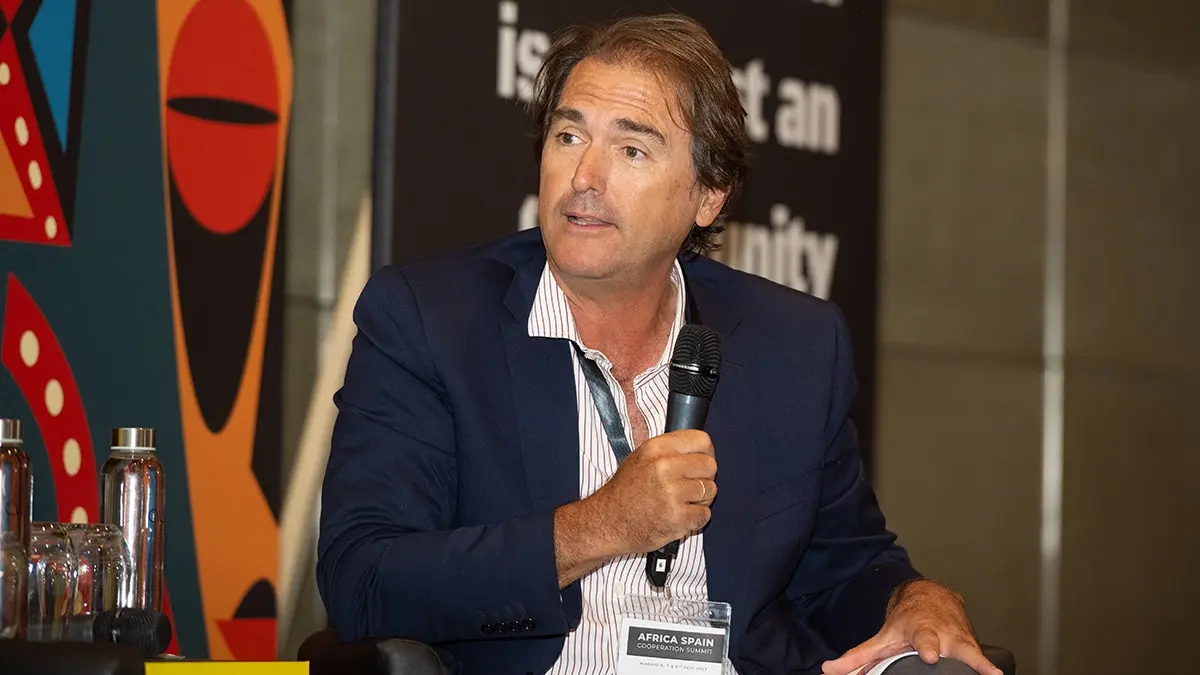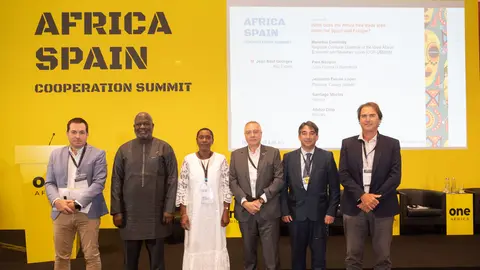The importance of promoting business partnerships between Spain and Africa with the Canary Islands as a key factor

The Canary Islands are very important in the link between Spain and Africa and this is of great importance when it comes to investment and trade relations. This was made clear at the Africa-Spain Cooperation Summit conference, where Atalayar had the opportunity to talk to an expert such as Jerónimo Falcón, the senior manager of Proexca.
What assessment does a technician like you make of Proexca after the Africa Spain Cooperation Summit? What objectives should we pursue and achieve with this type of initiative?
First of all, I would like to introduce Proexca, which is a public agency of the Government of the Canary Islands, attached to the Ministry of Economy, Employment and Innovation, whose main objective is to support the internationalisation of the Canary Islands economy. We do this in two ways. On the one hand, by supporting the promotion of exports of Canary Islands goods and services abroad, but also by encouraging the attraction of investment to the Canary Islands with the ultimate aim of diversifying the economy. As you all know, our economy is highly dependent on the service sector and tourism. And on the basis of the experience we have had with COVID, we are firmly determined to contribute to diversifying the economy and we believe that internationalisation can be one of the most interesting ways of doing this.
And in order to achieve this internationalisation, if you will allow me, it is essential to know each other.
It is essential. The Canary Islands are only 90 kilometres from the African coast. Historically, the Canary Islands have played a role in the supply of fuels on the Mid-Atlantic route. We supply more than 2 million tonnes of fuel oil to the maritime fleet that sails up and down from Africa to Europe and America. Furthermore, we have historical trade links with Africa, especially with the countries around us, ranging from Morocco, Mauritania, Senegal, Cape Verde, to the Ivory Coast, and even Equatorial Guinea.
As an outermost region, the Canary Islands play a fundamental role in the European Union as a spearhead or leader in transnational and cross-border cooperation with these countries. The Canary Islands, through the European Union's OMC programme, with the Azores and Madeira, leads cooperation initiatives with the countries I mentioned earlier, and this year two more have joined. Ghana has joined and Sao Tome and Principe has joined. We are now in the process of outlining the projects. These are projects that seek efficiency and sustainability, and we believe that the Canary Islands can play a fundamental role.
The Canary Islands is a territory that, in addition to having very good connectivity with Europe in terms of tourism, has not only maritime connectivity, but also air connectivity with Africa. We have more than 40 direct flights a week. The Canary Islands play a fundamental role for Spain in West Africa. So much so that, just as in Madrid there is Casa América and in Barcelona there is Casa Asia, in Las Palmas de Gran Canaria we have Casa África. Our vocation is one of cooperation and, in this area, the Africa-Spain Cooperation Sumit is an opportunity for us to explore.

We have to overcome clichés. Right now the African reality is not those films of 20 or 30 years ago. Of course, each country is different because sometimes we talk about Africa and it is as if we were talking about Europe because the countries are different. The former Prime Minister of Benin, Lionel Zinsou, has dared to say that Africa is the solution for an ageing Europe.
Yes, the former Prime Minister of Benin was quite right. We look at Africa, but unfortunately we have too globalist a vision. The Canary Islands are eight islands and each one has its virtues, its defects and its challenges. Africa is such a vast territory, so extensive, that it offers endless opportunities in strategic sectors in which Europe can collaborate, but also territories such as Spain and within Spain territories such as the Canary Islands are relevant because we have developed a very powerful service sector that we are now capable of exporting.
When we talk about tourism, we talk about the generation or solution of a lot of needs in the field of health, in the field of training, in the field of ship repair or automotive, in the field of renewable energies, we are isolated systems and Africa is precisely asking for "ad hoc" solutions that adapt to the needs of each of its populations and not global solutions of "coffee for all".
Furthermore, with legal certainty within each country there is stability, there are others in which, well, there are problems, there is some conflict, but in this sense there are American, French, German investors, why not Spanish?
Correct, we have seen that the Canary Islands offer legal security, that security that perhaps they do not find so clearly in African countries, and the Canary Islands have served as a base for expatriates for various investment projects, for example, American or Canadian in the mining sector or, now, recently, in the renewable energy sector through the well-known green hydrogen.
The Canary Islands are a candidate to provide the security cover needed by international investments that want to begin to make inroads in African countries and, fortunately, we are managing to increase the number of double taxation agreements between Spain and Africa. This means that a foreign company, for example, a North American company, can register as a company in the Canary Islands special zone and pay tax at 4%, we are not a tax haven, but 4% corporate tax is the best tax system in Europe. We can offer this with an additional advantage, which is that when expatriating profits to their country of origin, for example, the United States, they would not pay what are known as "withholding taxes", royalties.
Good relations with Morocco have also been noticeable in the Canary Islands in recent months. This improved political relationship benefits what is a very close relationship in the Canary Islands. Perhaps rather than thinking about confrontation or competition, what we need to think about is complementarity and offering complementary tourist packages.
Yes, we read every day in the press that the airline Binter, in particular, is opening new routes to destinations in Morocco every day. We believe that tourism development in the Canary Islands is very complementary to tourism development in Morocco, but, in addition to tourism development, there is much to be done in the field, as I mentioned earlier, of renewable energies, in the field of maritime safety. For example, Morocco is currently taking on major challenges in deep-water drilling for oil and gas extraction. We can be very damaged by a spill or an accident, so we have to build bridges of collaboration with Morocco so that there are formulas to avoid unpleasant situations for both parties. We are neighbours and we are condemned to get along well.
What objectives do you think we should achieve after the Africa-Spain Cooperation Summit?
I speak for the Canary Islands. This is the first edition. We are here to sound out the level of participants, the level of proposals. It is the first day. We are very positively impressed with the presentations that have been made. What we are here to defend is that we have to promote business partnerships between Spain and Africa and, as a key factor, the Canary Islands is emerging as a facilitating agent for this partnership.
Even public-private collaboration, because in different interventions, especially in infrastructures, collaboration between the public administrations of these countries and Spanish private initiative, which has the know-how and experience, is essential.
Yes, I know that Spanish business initiative has a strong interest in new markets of opportunity, especially in Africa. It would be important to analyse risk indices. Here we have the Spanish export credit insurance company, which plays a fundamental role in guaranteeing that Spanish investments are well covered. And, fortunately, bilateral agreements between more and more African countries and Spain are being well received.
Jerónimo Falcón, from Proexca, thank you very much and we will keep in touch to see how we evolve with Africa.
I would like to thank the Atalayar Group for the enormous work they are doing to unite the peoples of Africa and Spain and I wish them the best of luck.










